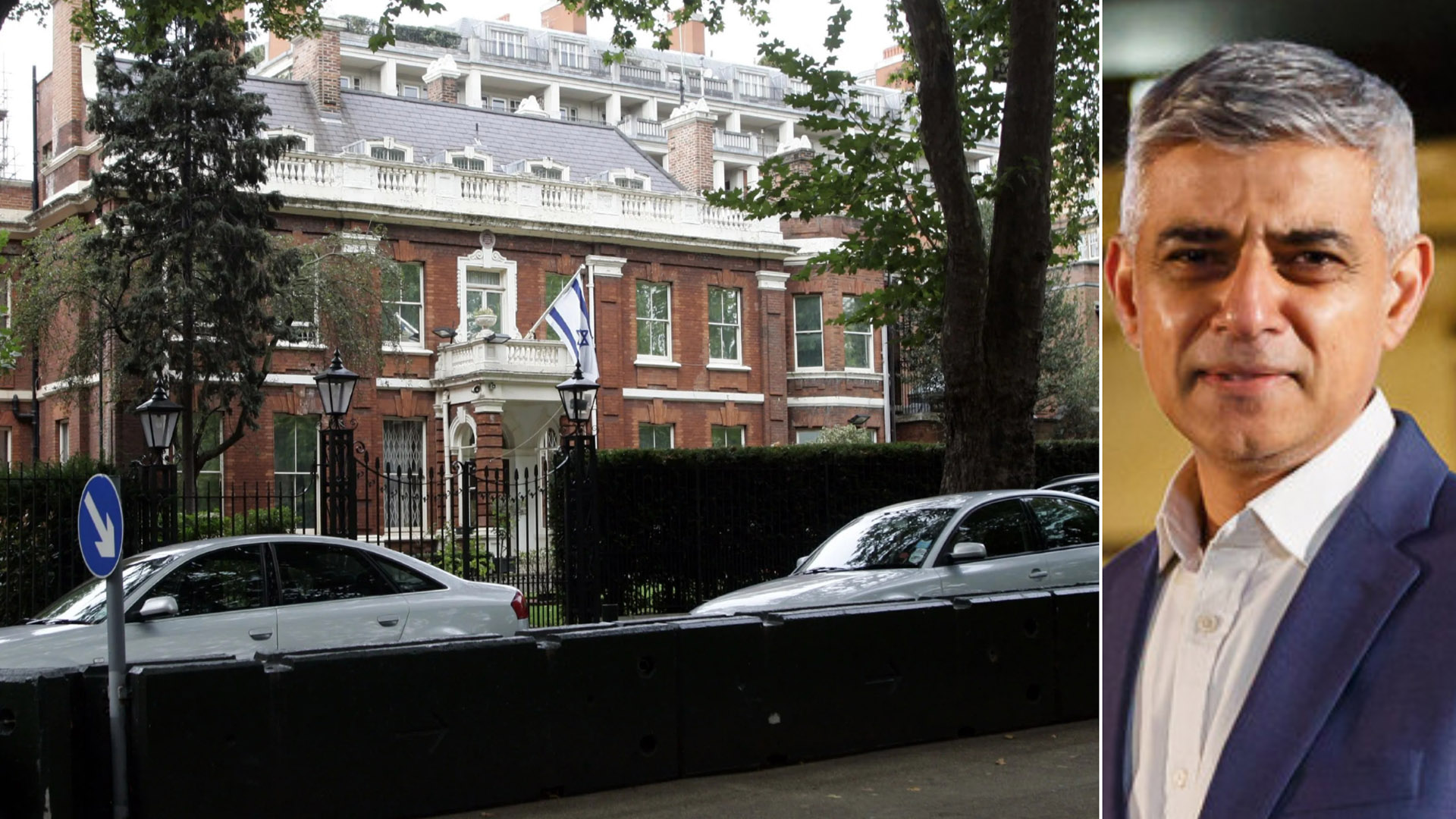
Elham Asaad Buaras*
The Mayor of London’s office has dismissed accusations from the Israeli Embassy in the UK, which claimed Sadiq Khan’s Eid al-Fitr message echoed “Hamas propaganda”.
A City Hall spokesperson described the embassy’s criticism as unfounded and reaffirmed that Khan has “repeatedly condemned” Hamas, while calling for a permanent ceasefire to end the ongoing conflict in Gaza.
The diplomatic row centres on a video message shared by Khan on March 30 to mark the end of Ramadan, in which he offered “warmest wishes” to Muslims celebrating Eid al-Fitr. Khan also acknowledged the suffering in global conflicts overshadowing the festivities for many.
“For many, the usual happiness we feel during Eid will be tempered by the appalling suffering and killing that continues in Sudan and Palestine,” he said. “More than 50,000 Palestinians have been killed in Gaza as a result of Israel’s ongoing military campaign, including more than 15,000 children. In Sudan, tens of thousands have lost their lives, and millions have been displaced by a devastating war now entering its third year.”
“These betrayals of humanity should weigh heavily on our collective conscience. But I’m proud that while the international community has chosen to avert its gaze, Londoners have not.”
On April 3, the Israeli Embassy issued a statement expressing it was “deeply dismayed” by Khan’s message. It criticised the Mayor for failing to mention Hamas or to condemn terrorism, stating: “The war is a result of the brutal and horrific attack by Hamas, a proscribed terrorist organisation in the UK, which was imposed on Israel on 7 October 2023.”
“It is alarming that throughout the message there is no mention of Hamas or any condemnation of terrorism, nor any call for the release of 59 hostages being held in horrific and inhumane conditions,” the embassy added.
It also claimed that the casualty figures cited by Khan were based on “Hamas propaganda” rather than verified facts. However, the United Nations and humanitarian organisations have consistently relied on data from the Palestinian Ministry of Health in Gaza, citing it as a primary source of civilian casualty figures during conflicts.
In defence of Khan’s remarks, a City Hall spokesperson reiterated the Mayor’s condemnation of Hamas: “The Mayor has repeatedly conveyed his outrage at attacks by Hamas on Israel and has strongly condemned these acts of terrorism. He is deeply saddened by the loss of all lives and continues to support calls for a permanent ceasefire.”
The embassy’s reaction comes amid growing scrutiny from right-wing and pro-Israel commentators on social media platform X, who accused Khan of omitting “context” and aligning with “anti-Israel” narratives.
However, Khan’s message reflects concerns expressed at the international level. In February 2024, the UK’s Foreign Secretary David Lammy noted that “over 28,000 people have lost their lives, including women and children” in Gaza. In November 2024, the UN Human Rights Office reported that nearly 70 per cent of verified deaths in Gaza were women and children.
Moreover, a January 2025 study published in *The Lancet* suggested the actual death toll could be up to 40 per cent higher than reported, due to bodies remaining trapped under rubble and unrecorded deaths.
Observers argue that the Embassy’s criticism must be seen in the context of Ambassador Tzipi Hotovely’s well-documented opposition to Palestinian statehood and her dismissive remarks about Palestinian history.
In 2012, she described Prime Minister Netanyahu’s endorsement of a two-state solution as “a tactical speech for the rest of the world.” While serving as Israel’s Deputy Foreign Minister in 2015, she told diplomats: “This land is ours. All of it is ours. We did not come here to apologise for that.”
In 2020, Hotovely faced backlash in the UK after dismissing the Nakba—the displacement of hundreds of thousands of Palestinians in 1948—as “a forceful and very popular Arab lie”, drawing comparisons to historical denialism.
In a televised interview in December 2023, Hotovely again rejected the two-state solution, saying “absolutely no” when asked whether Israel would accept such a resolution, claiming that Palestinians seek “a state from the river to the sea”.
Critics argue that these longstanding positions reveal an ideological underpinning to the embassy’s aggressive response and reflect a broader refusal to acknowledge Palestinian suffering or aspirations.